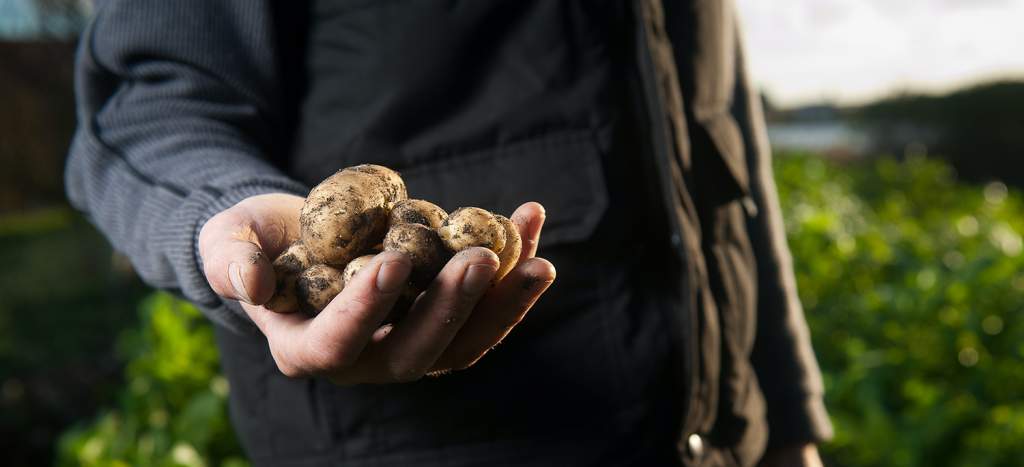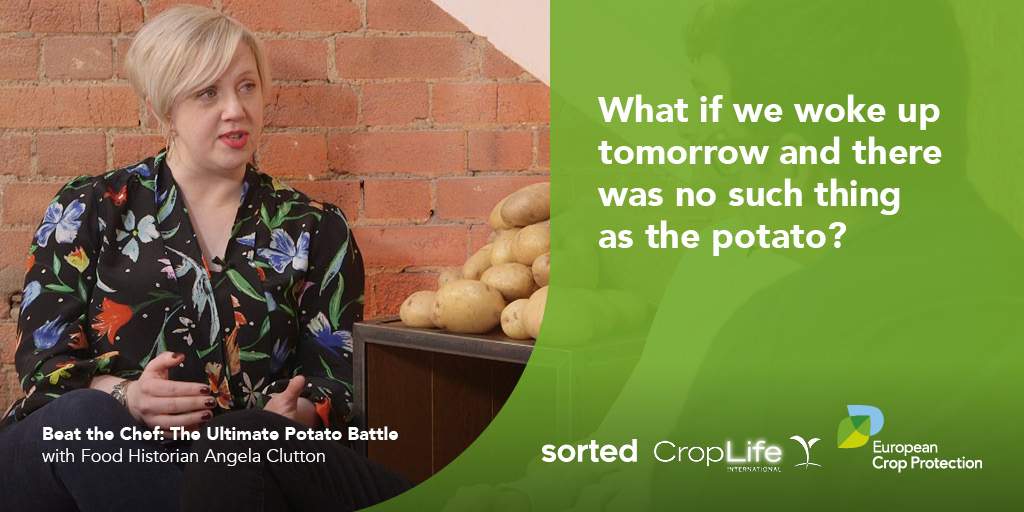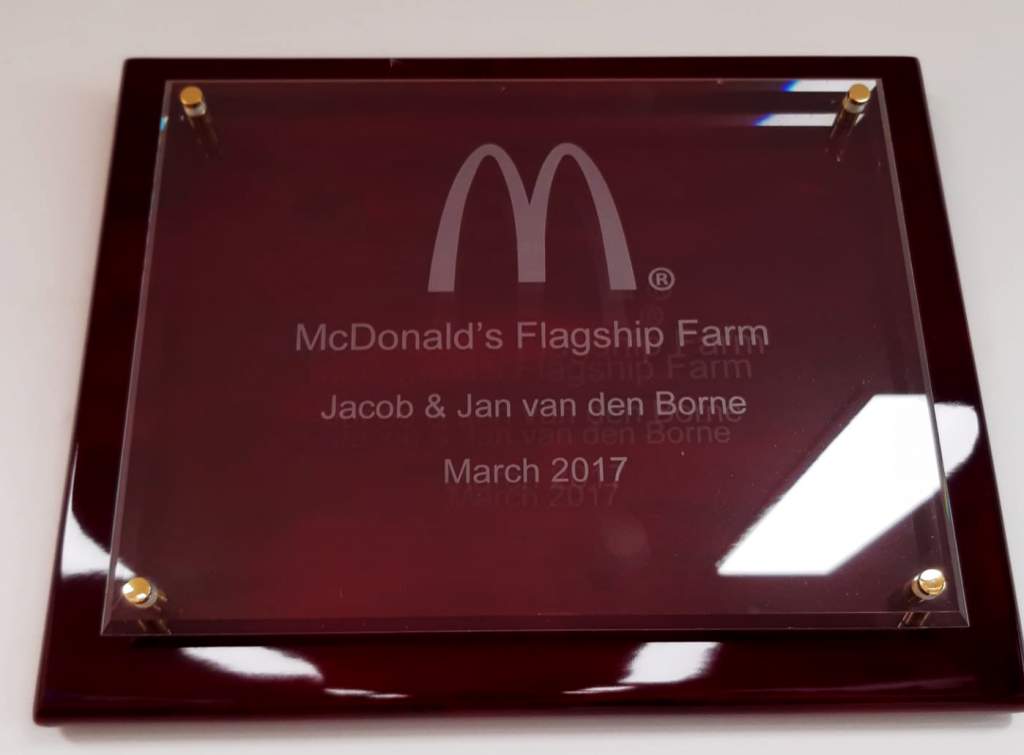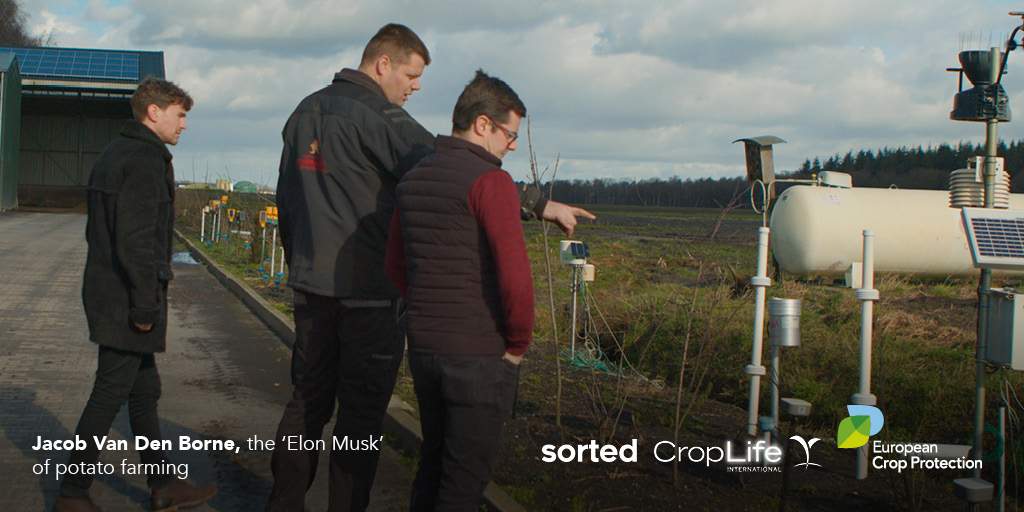By: CropLife International
We expect supermarket shelves to be filled year-round with a variety of fresh produce. Society is adjusting to living under measures that mitigate the spread of COVID-19 and this new normal can make us pause to reflect on where our food comes from, and celebrate those that ensure food supplies are maintained.
CropLife International and the European Crop Protection Association (ECPA) have teamed up with YouTube channel SORTEDfood to explore the story behind some of our ingredients and the challenges involved in producing them.
This episode focuses on the humble potato, or ‘spud’ as the British commonly call it, favored by chefs around the world for its versatility in cooking, and long chosen by farmers for its nutrient-dense, high-yielding value.

52 million tons of potatoes were harvested across the EU alone in 2018, but even with a crop that is so widely consumed in many different ways, there’s an increasing disconnect between the knowledge of how food is grown and how it gets to our plates.
Therefore, as an industry that helps farmers grow crops, the crop protection sector is committed to closing this gap.
Sorted Food’s Ben Ebbrell (a chef) and Mike Huttlestone (a ‘normal’) battle it out to see who can create the best tasting potato dish, incorporating some of the facts they learn about this starchy tuber.
Together with an audience of passionate and engaged food enthusiasts, they take us on a journey to understand more about how the food we eat is grown and what they discover might surprise you!
They first invited food historian Angela Clutton to the Sorted studio kitchen to discover more about this important food staple: from its origins in the high Andes, being viewed with suspicion in 16th Century France, to becoming an indispensable crop for the working class in the 19th Century.

When potato blight – a kind of mold – struck over successive years in the 19th century, it led to the infamous Irish Potato Famine between 1845 and 1849. This disaster contributed to more than one million deaths in Ireland alone and during the same time, blight also affected crops across many parts of Europe.
Disease continues to be a threat to potato crops to this day. Without crop protection methods, up to 40% of European crop yields could be lost each year and farmers are committed to producing food in challenging times and conditions.
To see this for themselves first-hand, Ben and Mike traveled to the Dutch-Belgian border near Eindhoven to visit a third-generation potato farmer whose family has been growing potatoes for more than 50 years. His harvest almost entirely goes to feed Europe’s French fry hungry consumers supplying, amongst others, brands like McDonalds.

Jacob Van Den Borne explains that his method of precision agriculture and attention to detail is something that each generation on his farm has applied. The only difference is the tools they use. Jacob has been called the Elon Musk of potatoes – this means the tools he uses are super innovative, and he takes advantage of digital advances to reduce his inputs, improve his yields and protect the environment.
Yet, despite having access to sophisticated technology tools and monitoring systems that generate data about his crops, he regularly walks around his fields and remains at the mercy of the climate and diseases – just as the generations of farmers did before him.
For example, during the extraordinary European heatwave in 2018 – maxing out at a record 42°C (107,6°F) for the Netherlands – Jacob lost almost half his yields, meaning he had to adapt and invest heavily in irrigation techniques to make sure that losses would not be as severe in following years.
Whether it is through water soil moisture monitoring, or using models to predict the spread of blight, learning about how best to protect the crop is essential to producing enough affordable, safe and high-quality food in challenging conditions.
“We use a lot of software platforms that tell us when to spray; those platforms get weather information and know in which kind of weather fungi can attack my plants. We aren’t only spraying the crops just before such an attack can happen. The software tells us when and how, and with what to spray” Jacob says.

“Sustainability is the key to what we’re doing. One thing that a lot of people forget is that we have to pay for all the chemicals we use. So, the less we put on, the better it is for us. We only use chemicals when they are absolutely necessary. Why put them on when they’re not needed? That’s how all farmers are trying to survive, also to ensure we have low food prices – every bit of money counts. Being sustainable is also about being affordable and therefore me lowering my cost price.
As farmers, we have the job of protecting future – because the population is growing fast and food demand is growing with that. If we don’t gear up, we won’t be able to work to feed the world”.
CropLife International and ECPA member organizations work to help farmers protect their crops from pests and diseases so we have safe and nutritious foods to eat.
Those methods range from the precise application of fungicides, pesticides and herbicides – including those of natural origin – to innovative biotech solutions that make crops more resistant to disease like blight.
Watch these behind-the-scenes video clips from Ben and Mike’s chats with Angela and Jacob, to find out more about where potatoes originated and how this nutritious crop with the potential to feed everyone across the globe, is protected to ensure it makes the journey to your table, Belgian frites (French fries) stand or favorite burger restaurant.
